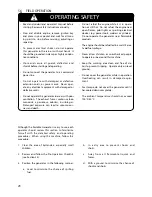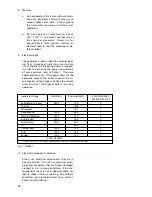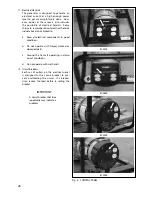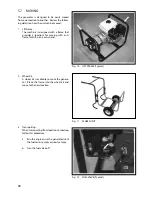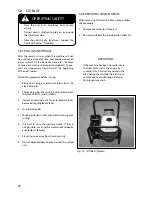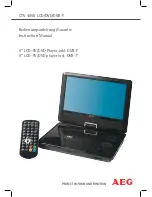
25
8. Weather:
a. Do not operate in the rain or with wet hands.
Keep the generator and work area dry to
prevent shocks and shorts. Always ground
the frame when operating in damp or wet
conditions.
b. Do not operate at temperatures above
100° F (40° C) to prevent overheating of
the engine or generator. Always run for
approximately three minutes without an
electrical load to cool the components be-
fore shutdown.
9. Electrical Loads:
The generator is ideally suited to camping, boat-
ing, farm, household, workshop, construction
site or anywhere that back-up power is required.
In order to determine the power requirements
of your appliance, refer to Table 1. There are
approximations only. If the power draw for the
appliance exceeds the outlet capacity, the cir-
cuit breaker will be tripped. Reduce the current
draw and reset the breaker before resuming
operation.
10. Electrical Component Condition:
Always use electrical components that are in
good condition. Do not use electrical cords,
plugs and connectors that are frayed, damaged,
cracked or not in good condition. Electrical
components that are not in good condition can
lead to shocks, shorts or sparking. Any of these
conditions can create and lead to an undesir-
able or unsafe situation.
Generator Usage
Start Watts
Running Watts
EC2500, EC2600,
EC3300 & EC5000
Refrigerator, Freezer
2500
700
Y
Toaster
1050
Y
Microwave
950
Y
Coff ee Maker
1500
850
Y
Washing Machine
2000
750
Y
Furnace Fan
1400
700
Y
Sump Pump
2500
600
Y
TV
350
Y
Circular Saw
1500
750
Y
Drill
1000
250
Y
Sander
1000
375
Y
Y=WILL OPERATE
PLEASE NOTE THAT THIS TABLE REPRESENTS A SAMPLE OF APPLICATIONS ONLY
Fig. 7 TABLE 1













